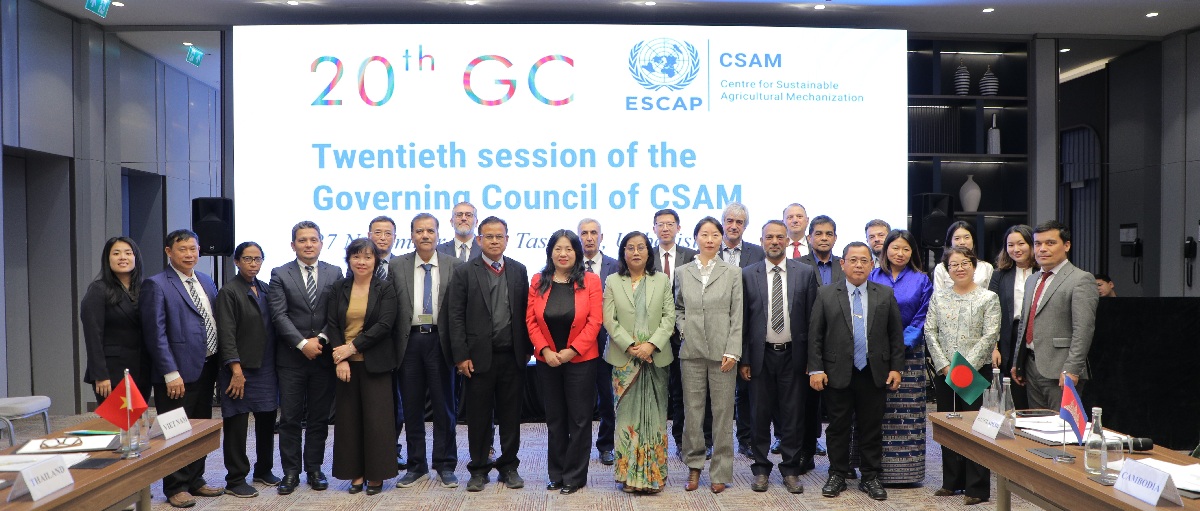Twentieth Session of the Governing Council of the Centre for Sustainable Agricultural Mechanization Held in Tashkent Commends Achievements of the Centre
ES Remarks


The twentieth session of the Governing Council of the Centre for Sustainable Agricultural Mechanization (CSAM) was held on 27 November 2024 in Tashkent. The Governing Council meets annually to review the activities as well as the administrative and financial status of CSAM, and to provide directions for CSAM’s programme work for the coming year. This year, the Council also discussed the preliminary findings of the institutional evaluation of CSAM and its new five-year strategic plan of CSAM (2025-2029).
All nine members of the Governing Council, namely Bangladesh, Cambodia, China, India, Malaysia, Pakistan, Sri Lanka, Thailand and Viet Nam, attended this meeting. Representatives from Bhutan, Indonesia, Philippines, the United States of America and Uzbekistan attended the meeting as observers. Officials from the United Nations Food and Agriculture Organization (FAO) also attended as observers. The Governing Council elected Mr. Anuchit Chamsing, Director, Post-Harvest Engineering Research Group, Department of Agriculture, Thailand, as the Chair for the twentieth session of the Governing Council and Ms. Mst Zohra Khatoon, Joint Secretary, Ministry of Agriculture, Bangladesh, as the Vice Chair.
In her welcome remarks, Ms. Armida Salsiah Alisjahbana, Under-Secretary-General of the United Nations and Executive Secretary of ESCAP, highlighted that the agriculture sector continues to face the juxtaposition of having food waste and hunger existing side by side. The promotion of sustainable agricultural mechanization can bring about the transformation of agricultural value chains and solidify the role of the agriculture sector as a driving force for poverty eradication, shared prosperity and a healthy planet.
During the discussions, the Governing Council commended the achievements of the initiatives of CSAM and recognized the importance of sustainable agricultural mechanization to achieve the 2030 Agenda for Sustainable Development. The Council also supported the five priority areas identified in the strategic plan of CSAM for 2025-2029, which are (i) strengthening resilience of smallholder farmers, (ii) enabling policies for promoting sustainable agricultural mechanization, (iii) promoting digital innovations and climate-smart mechanization, (iv) harmonizing regional norms and standards for integrated agricultural trade, and (v) promoting gender equality and youth engagement for inclusive and accessible agricultural mechanization.
Among emerging areas of interest, the Governing Council members highlighted automation, safety and comfort of equipment and machinery, agricultural industrialization for the attraction of youth to the sector, mitigation of post-harvest losses, reduction of greenhouse gas emissions, machinery management networks, performance comparison approach in standards, food safety, efficient use of agrochemical inputs, fragmentation of farm land, supporting access of women to decision making in agricultural mechanization. The Council also encouraged the Centre to continue its positive work on sustainable agricultural mechanization for poverty alleviation and rural development as well as crop residue management to support the region in sustainable development.
